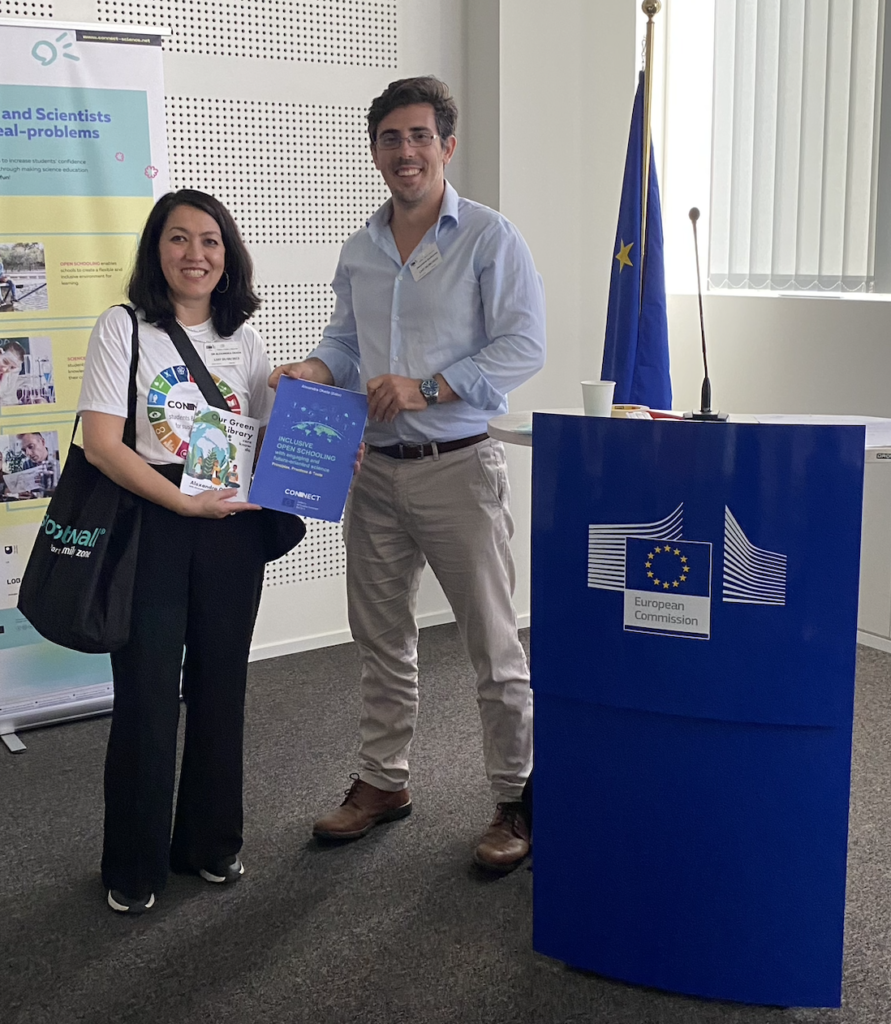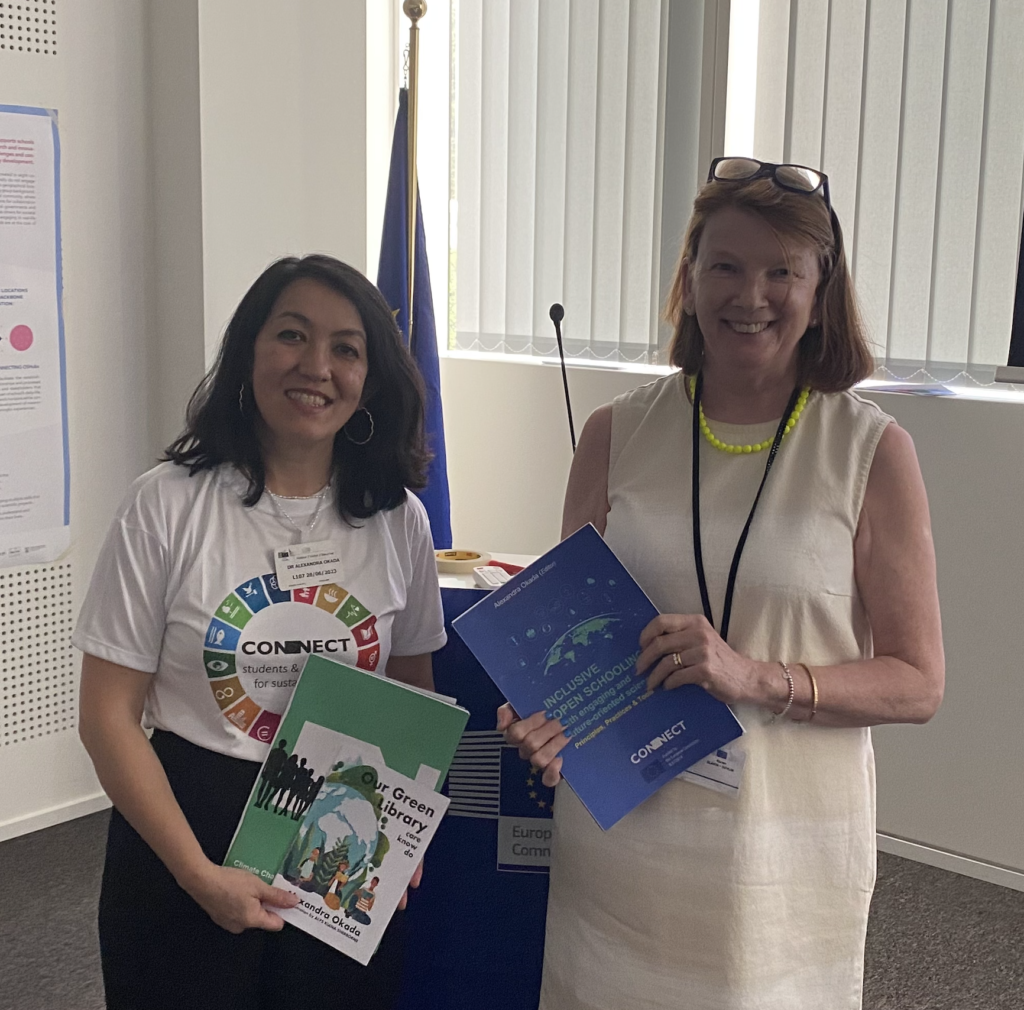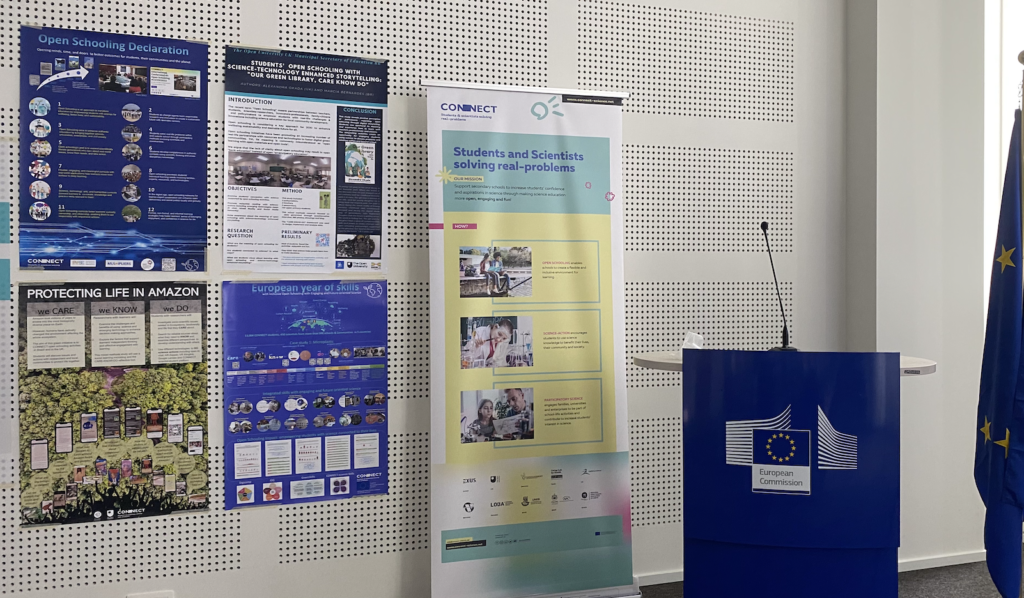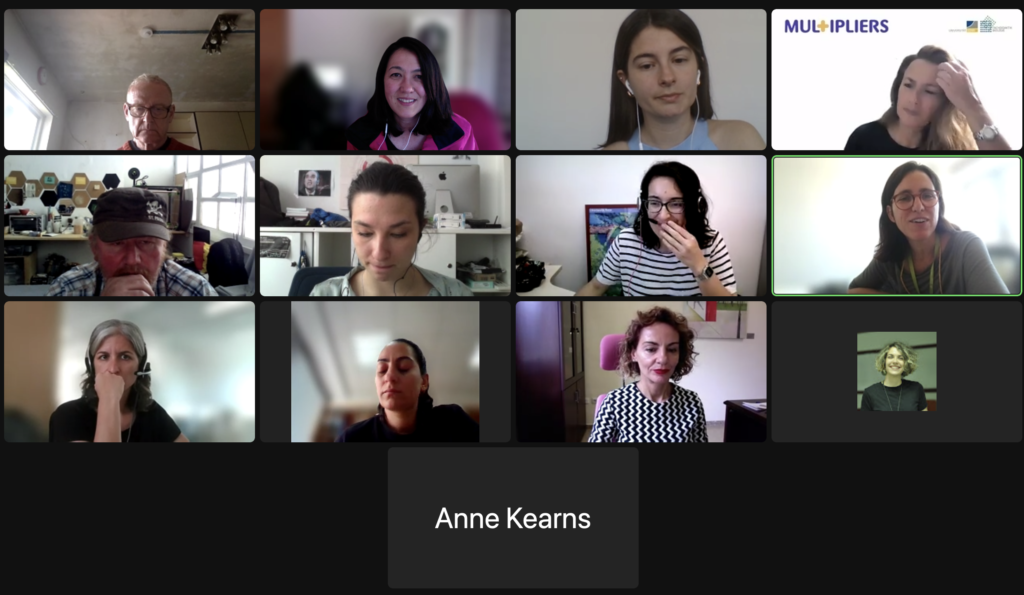Month: May 2023
News . Events Open Schooling Declaration launched in Barcelona CICOS2023 Conference
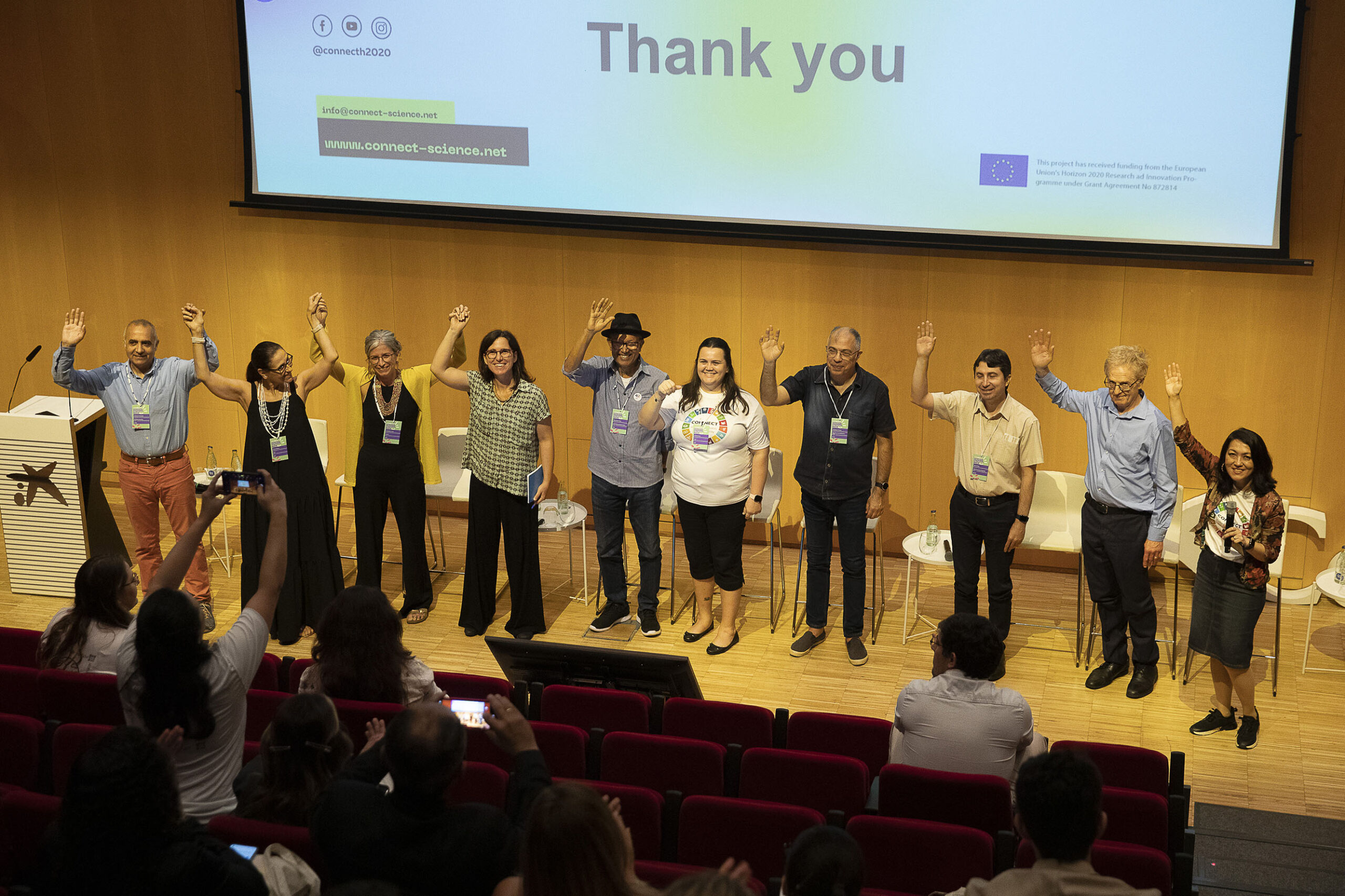
More than 100 people signed the OSD Open Schooling Declaration
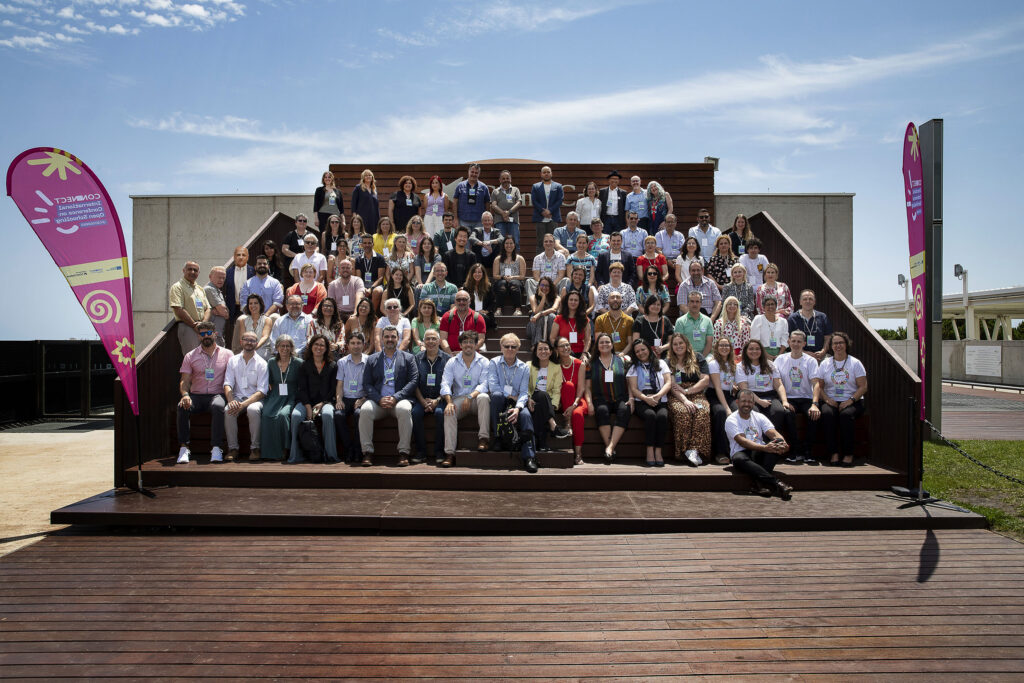
CONNECT, International Conference on Open Schooling.
foto: Jordi Play
The Declaration can be accessed and signed here in this link: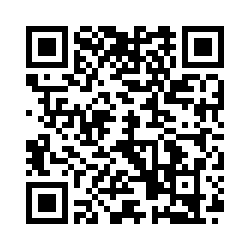
How was the declaration developed, refined and implemented?
On the 8th of June, fifteen members of OS Together discussed about the OSD – The Open Schooling Declaration, a comprehensive initiative aimed at advancing the open schooling movement. It seeks to raise awareness about the importance, objectives, methodologies, and relevance of open schooling across various forms of education. The OSD aims to strengthen open schooling by widely disseminating common principles, recommendations, and actions that promote the development of resources, technologies, methods, practices, and policies. Ten open schooling projects representatives participated in the declaration by providing feedback online synchronously and/or assynchronously.
The OSD comprises 12 global principles, along with a set of 14 recommendations and 40 actions. It is intended for various stakeholders, including governments, international organizations, education agencies, ministries, charities, universities, schools, STEM professionals, and third sector organizations such as museums and outdoor education providers.
The initial version of the OSD was initiated by the partners of the CONNECT project and subsequently improved with input from an External Advisory Board. It underwent a pilot test by partners and collaborators who shared examples from their practices related to the OSD.
The second version of the declaration was developed after three stages:
1. discussions and contributions from experts and practitioners within the Open Schooling Together (OST) community through online meetings both synchronous (8th of June) and asynchronous (12th – 19th of June) LINK HERE
2. discussion in Brussels (Open Schooling Showcase) with EU project Officers (26th of June) LINK HERE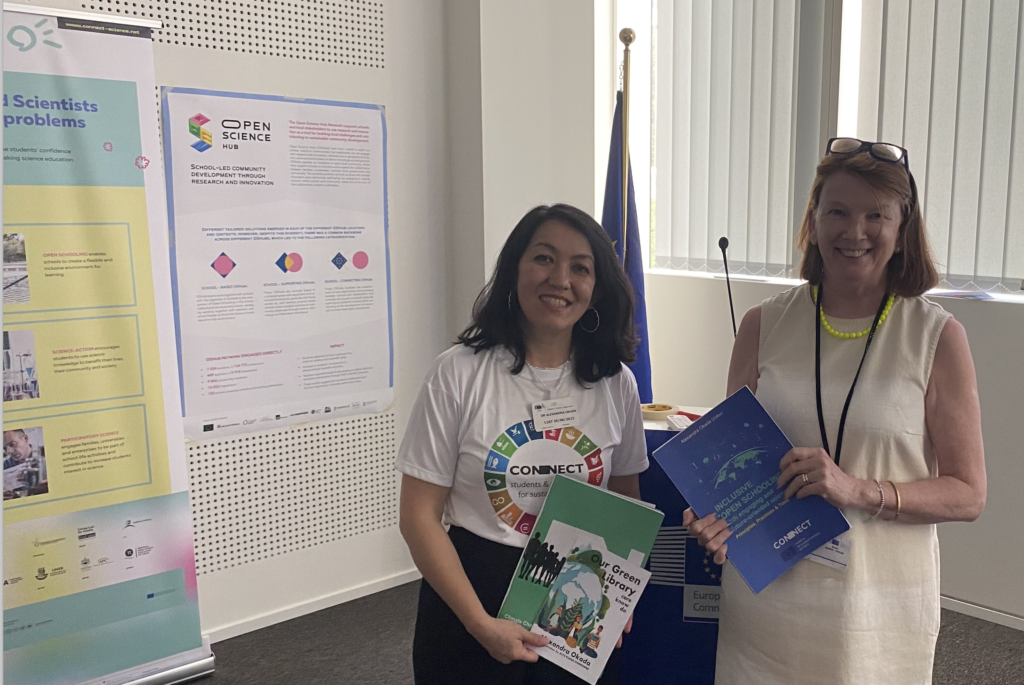

3. Official launch at CICOS2023 Barcelona Event 6-7th of July – Declaration was signed by more than 100 people.
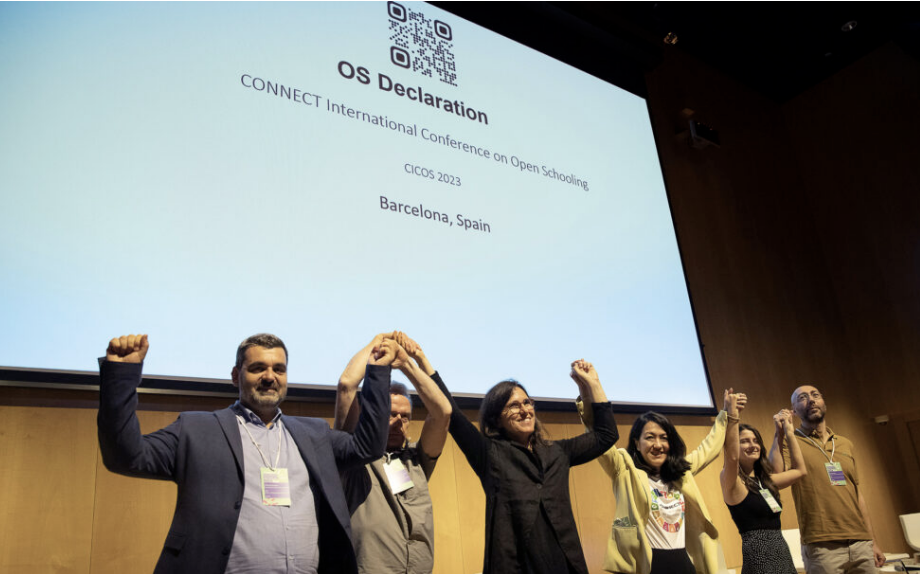
This collaborative process will result in a joint deliverable to be submitted tothe European Commission in December 2023
that acknowledges all the collaborators involved in shaping the declaration.
Our next step is to publish the declaration in various languages and collect 1000 signatures.
The inspiring session was led by The Open University, scientific coordinator of CONNECT
and supported by ECSITE the coordinator of OS Together network of 15 open schooling projects.
All project managers were invited and supported the final refinement of Declaration.
See a brief summary about our session on the 8th of June
What are our expectation about OSD declaration?
A common vision, sharing, new ideas, networking, collective knowledge,
Cooperation, collaboration, partnership, collective impact
Inspiration, curiosity, exchange of experiences, lessons learned, reconnecting colleagues,
What are our key questions?
- How to take OSD and OST forward?(CONNECT)
- How can we sustain our networks and projects? (ECSITE)
- Can we share guidelines about how to sustain our networks? (Multipliers)
- Can we have an impact – and map? Can we have a scale about projects? (CONNECT)
- Can we have a common definition adapted: bidirectional school⇔ society ? (ECSITE)
- Lets agree on a document to get input from everyone – as people need more time (Multipliers)
- Can we build on what we have achieved?(MOST)
- Can we use evidence from our projects’ evaluation to move forward?(MOST)
- Can we add the evidence/findings in the document?(MOST)
- What are the lessons learned from STEAMH ⇔ Sustainability projects to enhance learning and transform education?(MOST)
- Can we learning from each other and make the Most! (MOST)
- Can we have a set of common impact indicators? (CONNECT)
- How can the OSD document provide information/ key issues/ and practical (IT) solutions? (Levers)
- Can we create opportunities for engaging and training apart from dissemination and increasing awareness…?(Multipliers)
- How to empower people through significant personal development…? (Multipliers)
- Can we provide a structure to support our networks/project / as well as future projects? (CONNECT)
Our session was very interactive this was a summary of our Agenda
INTRODUCTION
12:30 What and Why OSD with OTS? Ale Okada
12:35 Who can benefit from ODS? Rosina Malagrida
FISHBOWL
In what ways can OSD be used for ? Facilitator: Ale Okada & Peter Gray
12:40 Round-1: Sustaining OS:Phereclos, OSHub, Seas,
13:50 Round-2: Scaling OS: Sall, Most, Connect, Mio
13:00 Round-3: Supporting OS: Multipliers, PAFSE, Cosmos
13:10 Round-4: Coming Next: SLE, ICSE, LEVERS
FINAL REMARKS
13:20 Launch OSD Ale Okada
13:26 OST in Barcelona Greta Alliaj
15th of June OST members received the updated OSD for wide dissemination (ECSITE2023)
26th of June BRUSSELS Poster of OSD was presented at the OS Event led by OSTogether, including various projects MIO, SALL … & CONNECT
06th of July OST members launched the official launch of the OSD (CICOS2023)
29th of August OST members disseminating the OSD at the ESERA Conference
01st of September OST workshop to discuss practical ways to implement OSD
MEETING in BRUSSELS
April 2022 1005 May 2023

Report link 2022 with 1005 students
Report link 2023 with 12509 students
The findings from the CONNECT-science study demonstrate a significant impact on students’ perspectives, knowledge, and skills based on their self-assessment.
The baseline study conducted in 2022 included 1005 students from five European countries (Brazil, Greece, Romania, Spain, and the UK). After one year of participation in the CONNECT project, it was observed that a majority of students (76%) had a positive view of science in their lives. By 2023, this number increased further to 80%.
The most notable impact was observed in terms of knowledge. In 2022, 38% of students reported feeling confident in their science knowledge, which rose to 53% in 2023. Regarding skills, particularly in conducting projects with experts and communities, 49% of students expressed confidence in 2022, and this figure slightly increased to 52% in 2023.
Teachers’ perspectives on student achievement provide various examples that highlight the higher level of skill development observed among students. These examples include inquiry-based learning, responsible research and innovation (RRI) competences, as well as digital and green skills.
Today, the results of the CONNECT project have been presented in a book at the EU seminar held at the European Commission. You can access the book at the following link: Link to the book of CONNECT results presented at the EU seminar at the European Commission: https://oro.open.ac.uk/89951/
News . Events Open Schooling as a boost for Europe’s skills at the European Union
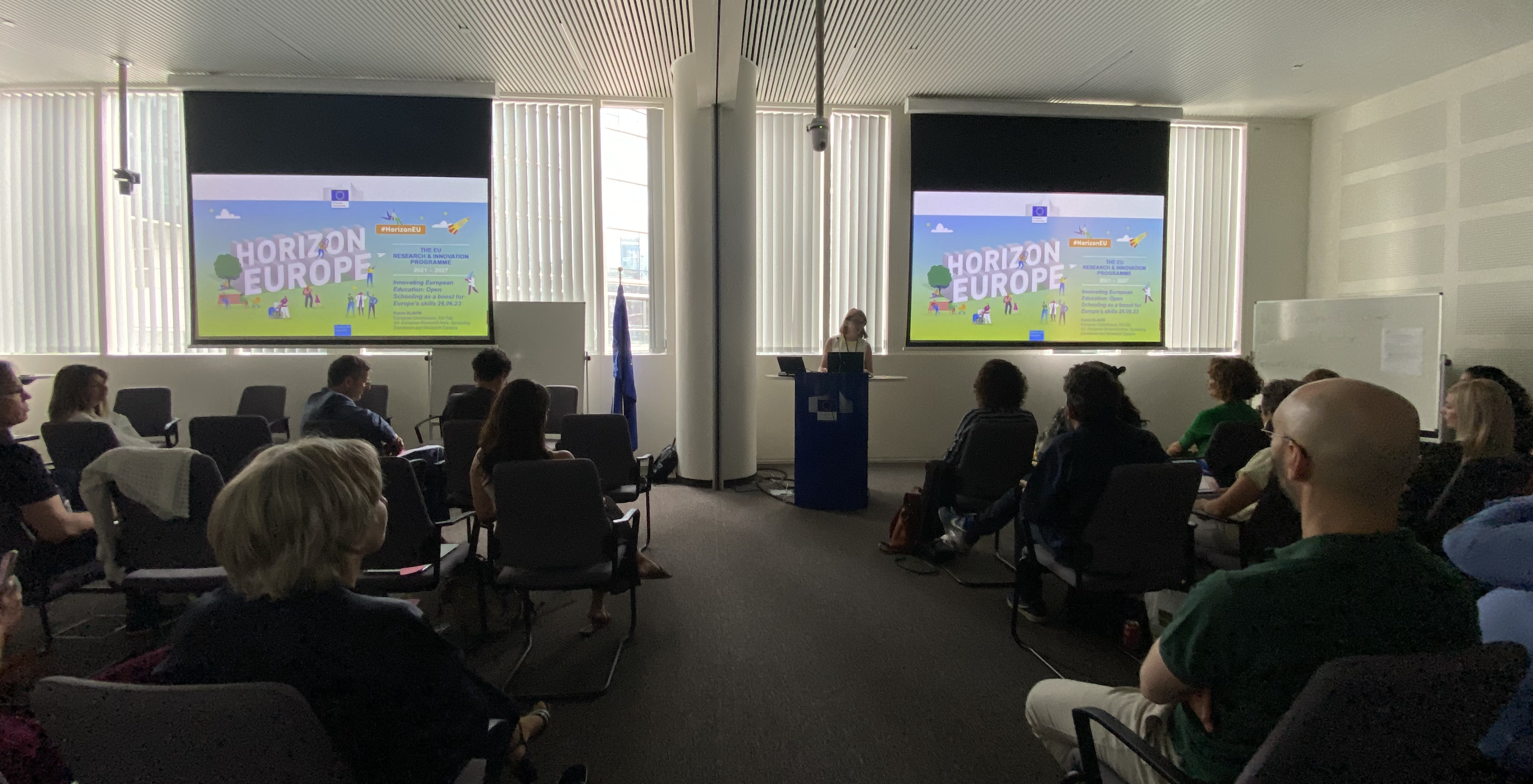
Innovating European Education: Open Schooling as a boost for Europe’s skills
The future of open schooling
On the 26 June at the European Commission in Brussels; The Horizon 2020 projects Make it Open and SALL, with the support of the OStogether network, promoted an in-depth discussion about Innovating European Education: Open Schooling as a boost for Europe’s skills.
The OStogether network is an informal network of initiatives funded under calls related to Open Schooling through the Horizon 2020 and Horizon Europe programmes.
The network brings together more than 50 organisations closely collaborating together and complementing each other within the big picture of Open Schooling.
During the current European Year of Skills, the event brought together policy makers as well as experts in innovative science education practices. This forum was a fantastic opportunity to share the vast body of knowledge and experiences that have been built over the years on Open Schooling (including various references) indicating how this could shape policies around innovating European school education systems and the future.
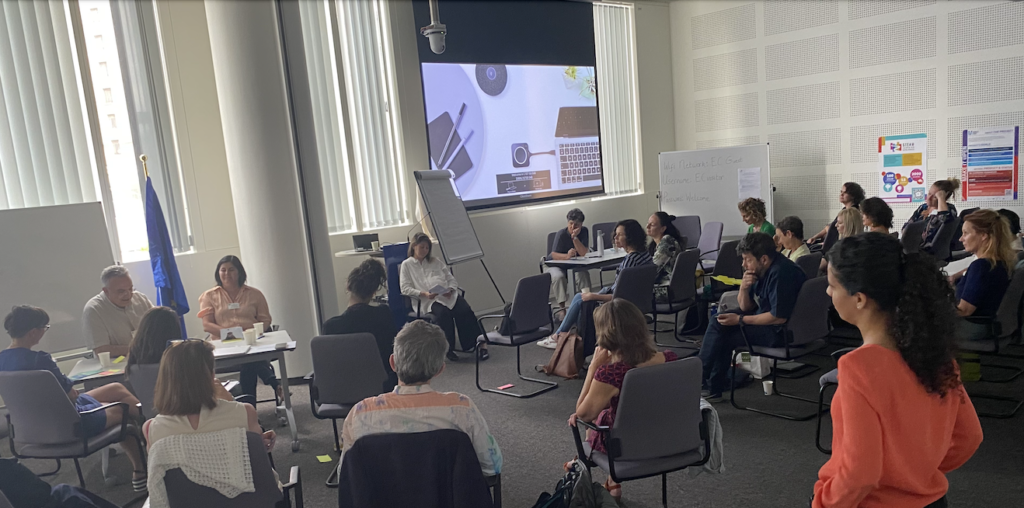
The notes bellow prepared by CONNECT Team provide a summary of the debate led by Maria Zolontosa with Maya Halevy, Director at the Bloomfield Science Museum Jerusalem; Pavlos Koulouris, Senior Researcher at Ellinogermaniki Agogi; Stephanos Cherouvis, Senior Project Manager at Ecsite; Annalisa Addis, Project Manager and Research Associate at The Lisbon Council and Marta Romero, Director of the International Project Office at the University of Jaen; including also comments from Ale Okada from the Open University.
Are the policy makers fully ready to embrace open schooling?
We are not sure yet, but it’s not because of the schools or the teachers. we believe the issue lies in how we organize the education system. When we introduced open schooling and collaborated with teachers, we discovered that they were quick to adapt and engage with the new approach. They embraced the learning opportunities and applied what they learned from one project to another, transforming their teaching methods.
To truly implement open schooling, we need to work on multiple levels and reconsider the existing structures and regulations. We should encourage creativity, openness, and provide ample opportunities for change. By changing policies, we can empower teachers and enable them to excel.
We find it motivating to witness as researchers so many people getting involved and taking positive actions. It’s an opportunity for us to gather evidence and support research-based policies. We aim to increase students’ interest in science and scientific careers, improve their scientific literacy, and enhance their understanding of environmental sustainability issues. We have gathered research evidence that demonstrates a positive impact through our initiatives. We are eager to share our findings and inspire other schools to join us on this path.
Assessing the impact of open schooling is essential. It involves not only evaluating past outcomes but also understanding the underlying factors that contribute to success or hinder progress. This requires a comprehensive approach that combines assessment with a deep understanding of the context. It would be beneficial to conduct a research project that examines the impact of open schooling across various schools. Such a project could provide valuable insights and enable us to learn from different experiences.
There is ample evidence of students’ improved learning and positive outcomes through open-ended approaches in schools, such as involving students in all stages of a project. This approach leads to better learning outcomes, enhances civic engagement, and boosts self-efficacy. It goes beyond simply having teachers design projects and involving students only in their implementation. Although there have been many learnings from various open schooling projects, it is important to note that these initiatives have primarily focused on coordination and community building. Therefore, there is a need for more research. How can we t explore and integrate the insights gained from these projects into a cohesive body of knowledge that is valuable to policy makers? What do they need from education with Open Schooling?
How can we make open schooling and approach for all?
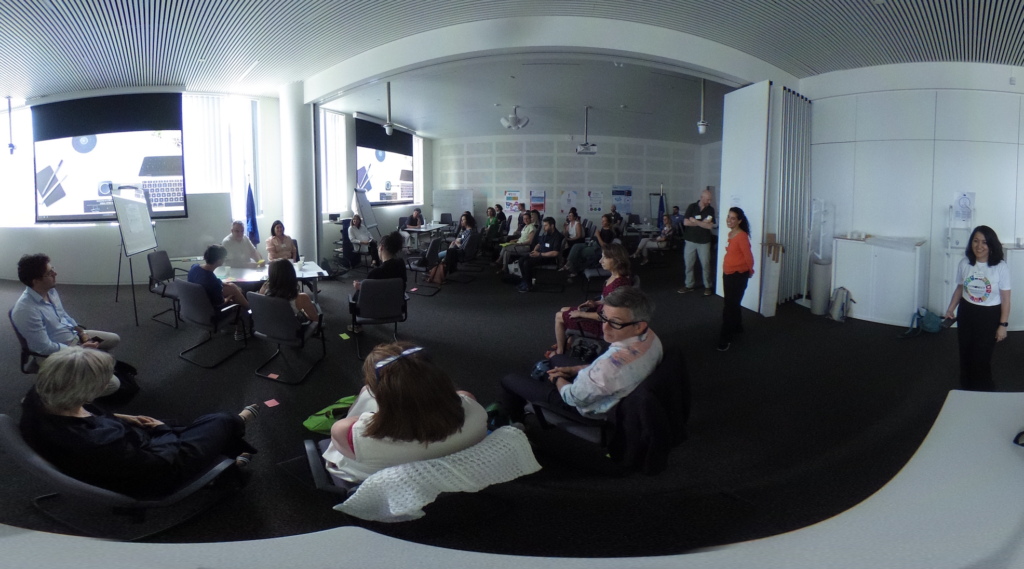
Recognizing the value of open schooling and prioritizing it in education systems’ current needs are fundamental to sustain evidence-based impact with real-life problem-solving for wellbeing and sustainability. To ensure widespread adoption, a systematic and holistic approach is necessary. The continuum of learning and the learning Ecology of the ecosystem are particularly appealing. There are various examples, like surrounded by science, where research has explored learning ecologies and their positive impacts. These ideas provide a deeper understanding of teaching, learning, assessment, education standards, and the interaction between formal and informal aspects of education.
Mainstreaming open schooling requires going beyond individual schools and projects. While there are fantastic examples out there, they are often disconnected from one another. Disparities exist across schools and regions, and it would be a disservice if only some schools or students have access to this type of education. Socio-economic factors play a significant role in the uptake of science education and careers, and those who are already disadvantaged might be left behind twice if open schooling is not accessible to all. It is crucial to address this challenge and ensure that open schooling becomes a reality in every school in Europe.
One approach is to combine top-down and bottom-up strategies. It’s not enough to simply convey nice messages; we need to actively support open schooling and take it seriously. Teachers require spaces and plans for collaboration, both within their schools and with external partners, such as scientists, entrepreneurs, and organizations that share common goals. Teacher professional development, sharing of best practices, and the narrative of successful school initiatives are also essential for fostering collaboration across boundaries.
Looking at the success of the open schooling movement, it is worth exploring what made it so special and how it managed to penetrate education on a broader scale. Advocacy for open schooling needs to be approached differently, both at the national and regional levels. There is a need to showcase what can be done differently in education and emphasize the importance of open schooling. Collaboration among European consultants with their expertise and know-how can contribute significantly to this advocacy effort.
Investment in open schooling should go beyond financial resources. It requires belief, legitimacy, and the dedication of resources, including human resources. While funding is crucial, investing in open schooling means recognizing its value and committing the necessary resources to support its implementation. By investing in open schooling, we can create a more inclusive and equitable education system that benefits all students.
In conclusion, to mainstream open schooling, how can we with policy makers adopt a systematic and holistic approach to sustain open schooling for all? This involves combining top-down and bottom-up strategies, investing in open schooling, addressing disparities, and advocating for its importance at all levels of education. By doing so, we can create an education system that embraces openness, fosters collaboration, and provides equal opportunities for all students.
What are the opportunities and barriers to mainstream Open Schooling?
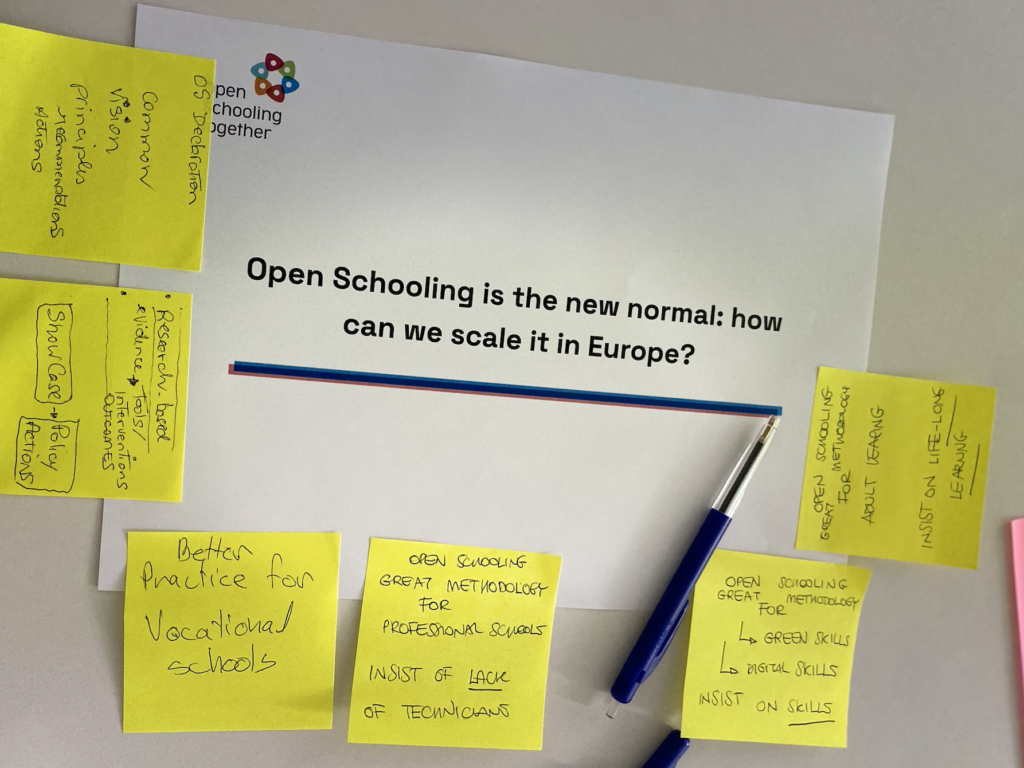
To mainstream open schooling and ensure its widespread adoption, a holistic and systematic approach is crucial. One key aspect is recognizing the need for teacher readiness. Without prepared teachers, the implementation of open schooling initiatives may face challenges. This issue is not unique to a particular region or country, as many schools worldwide may be in similar situations. Therefore, investing in open schooling should aim to make it accessible to all, eliminating privilege and disparities in education. Adequate funding is essential, but it should also prioritize addressing accessibility needs, ensuring that open schooling benefits all students, regardless of their socio-economic background.
Moreover, we should consider the attractiveness of the teaching profession within open schooling. By redefining the role of teachers beyond traditional classroom instruction and assessment, we can make the profession more appealing to individuals who seek diverse and innovative teaching approaches. This transformation can be achieved through collaborations with various stakeholders, including partners from different sectors. European consultants and experts can play a vital role in driving advocacy efforts and inspiring change at the national and regional levels.
Scaling up open schooling requires addressing specific challenges and moving beyond superficial showcases of isolated initiatives. Integration into the education system is essential, including recognition and legitimacy within the curriculum. This entails aligning open schooling with education standards while leveraging its potential for progressive education. Policy’s support and inspiration from successful open schooling practices in other countries can guide this integration process.
Collaboration and synergy with stakeholders, including societal actors, are central to open schooling. It is crucial to provide guidance and support not only to teachers and schools but also to parents and community members who can contribute to real-life projects and other initiatives. Teacher training and professional development should address digital competency, project management skills, and other necessary competencies for open schooling.
In summary, to mainstream open schooling effectively, policymakers should invest in its integration into the education system, provide support to teachers and schools, and align open schooling with curriculum standards. This requires a long-term vision, commitment to research-informed practices, and the provision of sustainable resources. By recognizing the transformative potential of open schooling and prioritizing its implementation, we can create an education system that prepares students to tackle future challenges and fosters inclusive and empowered citizens.
What are the challenges and strategies to mainstream Open Schooling?
“The big challenge in designing a better future is of utmost importance. As policymakers, our job is to find ways to support what is already working, and open schooling provides excellent examples. It is crucial to emphasize the need for research-driven and evidence-based approaches in open schooling. We should go beyond creating isolated pockets of innovation and networks, and instead focus on integrating research into sustainable and widespread initiatives.
To achieve this, we must consider the role of teachers in open schooling. We should explore ways to change the profile of teachers and their recruitment and training processes to align with the principles of open schooling. By redefining their roles as mentors, facilitators, and integrators between community experts and students, we can make the teaching profession more appealing. This shift will bring about a different daily work experience for teachers, fostering a collaborative and engaging environment.
Supporting open schooling requires a research-based approach that provides legitimacy to the concept. To address this, we should consider integrating the findings from various European projects and leveraging the evidence they have produced. Currently, there are around ten European projects with research conducted in thousands of schools, offering a substantial body of knowledge. We need to make this work more visible and accessible to policymakers, making it easier to persuade them to adopt open schooling practices.
One approach to accomplish this could be establishing a Science Communication European Competence Center, which brings together previous funded projects. By consolidating the evidence and sharing it effectively, we can create a unified push towards open schooling. This effort should go beyond simply competing for funding and focus on collectively advancing the field. It will provide the necessary platform for sharing research outcomes and ensuring their impact on policymaking.
Additionally, sustainability and environmental education could serve as a unifying theme for open schooling. By focusing on topics like climate change and sustainable development, we can engage policymakers beyond just science learning. However, it is essential to strike a balance between addressing overarching themes and preserving the depth of basic science education. Paying attention to the details of content, programs, and skills is critical to achieving our goals.
While policy and politics often operate on short-term trends, we should not solely rely on policymakers to drive change. It is necessary to hack the system and recognize that substantial transformations may require efforts from the grassroots level as well. We must not be naive about the distinction between policy and politics. As such, a combined approach, involving bottom-up initiatives and simultaneous engagement with policymakers, can lead to meaningful progress.
Amplifying successful practices from open schooling projects poses a challenge. It requires both incentives and financial support. European policymakers can play a vital role in scaling up these practices by allocating resources and disseminating research findings.
Can we together bridge the gap between policy and practice, leveraging the lessons learned to bring about a positive change in education?
we really appreciate the idea of bringing projects together, especially at this moment when we have access to large networks. In our work about open schooling integrated to the curriculum, we have already managed to involve 30,000 students who completed science actions through open schooling, and the data we have generated from 13,000 of them is growing rapidly. Our findings revealed that open schooling is an approach for students to develop more than superficial knowledge. They need that initial contact with open schooling, to build what we call surface knowledge involving science concepts and definitions. Through open schooling this surface knowledge acts as a steppingstone, gradually leading them towards deeper and transferable knowledge supported with scientific skills while they are solving real-life problems.
When considering partnerships and engaging with policymakers, it is essential to understand the motivations and perspectives of different countries. For example, we are collaborating with the Brazilian government, which is not funded by the European Union. Brazil’s participation highlights the international significance of the EU’s open schooling model. OS together partnerships involved south and north America, further expanding our global reach.
Addressing the challenges faced by schools and teachers is crucial. Lack of teachers and mobility are significant problems. In various European countries there is the lack of science teachers, biology teachers teaching physics because of a shortage in that field. Additionally, primary schools often lack teachers with a science background. These are complex issues that require modern solutions and initiatives for collaboration. It is fundamental joining forces and creating more opportunities for partnerships.
Lastly, we would like to emphasize the importance of fostering confidence in students. In our open schooling projects, we prioritize creating a safe and encouraging environment where kids feel confident discussing science. By nurturing this confidence, we can help them develop a positive attitude towards science and empower them to use scientific knowledge for transformative purposes.
Today, we have the privilege of having representatives from various open schooling projects here, and many of our initiatives engaged policymakers and politicians alongside the mayor, city officials, and the Secretary of Education. This gathering provides an excellent opportunity for networking and collaboration. We encourage everyone to interact and exchange ideas, as it is through collective efforts that we can truly make a difference in education.
The World Cafe was useful to discuss various issues, which we wish to carry on the discussion in the CICOS2023 Conference in Barcelona.
1.How can we integrate and sustain open schooling resources and tools?
- The terminology Open schooling is not clear definition particularly when translate it to various languages.
- How to make a connection with Ministries, as teachers look for these websites.
- A new platform will die, SCIENTIX can be a solution – identify long term solution to keep resources available.
- A short Open schooling activity or a special Open Schooling Day.
- Make available resources tools and courses e,g, MOOC on all current project websites.
- Continuing together with ERASMUS + programme for cooperation.
2.How can we keep Local open schooling communities connected and sustained?
- Use EU Funds private grants to scale up some initiatives at national and transnational levels.
- Community connected and sustained with ERASMUS+.
- Strengthen collaboration with local councils and municipalities.
- Erasmus + transnational cooperation activities involving cross sectorial cooperation.
- Twinning networks adapt best practices to local realities.
- Mentoring and coaching teachers to scale up their initiative.
- National and regional government recognises EU projects inputs.
- Engage young ambassadors, local champions.
3.Open schooling: how can we scale it in Europe?
- OS Declaration largely disseminated – common vision, principles, recommendations, and actions.
- Research-based evidence about open schooling Tools, interventions, outcomes – in a showcase to support policy actions.
- Better practices for vocational schools
- Open schooling great methodology for professional schools to tackle the lack of technicians.
- Great methodology for green skills, digital skills
4.How can the OSTogether group keep collaborating and staying connected together?
- Benefits for organisations that are part of the projects.
- Partnerships opportunities
- Involve several actors not only but all local partners.
- Green education collision with Erasmus +
- Creating community building.
- Inspiration sessions, events and social media .
- Explore the EU funded “cost” for bringing 2/3 people from 10 organisations to establish actions.
- Monitory innovation .
5.Practice-research partnerships in Open Schooling main research insights?
- Evaluation is a big challenge in OS methodologically due to dispersity of activities.
- Communicating evaluation to teachers- ownership and research responsibility – seen a burden by some teachers.
- Gap between practice and evaluation – data collection.
- Link evaluation with assessment for learning.
- Important to combine quantitative with qualitative methods.
- Balance between practice ad evaluation partners.
- Reflection and action research teachers as researchers – examining what is important and meaningful to them.
- Beyond empirical research, research as a process to develop different outcomes methodologically interdisciplinary curriculum etc.
- Understanding and mapping the variety of OS projects and linking them for more theoretical research.
- Useful for practitioners in their local language.
- Disconnection between language and interests of practitioners Translate concepts into teachers’ language.
- Evaluation showcase.
- Bring researcher into school capacity building within the school to continue after the project is finished.
- Develop some common grounding some common objectives and elements agreed for future research.
- What we have proved efficiently about OS approach.
- Move from CSA to RIA and fast track to innovation FTI.
- Common design evaluation (common questions) for all projects.
- Outcome to right channels at EU Commission, finding all POs of the EU projects bringing them together with us.
CONNECT team also provied a copy of the CONNECT BOOK free download here: https://oro.open.ac.uk/89951/ to Karen Slavin
we also presented the Open Schooling Declaration link to signin here
and report to follow signatures here
